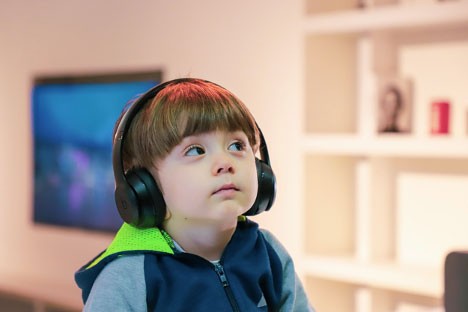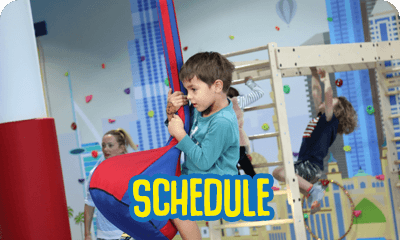
4 Reasons Music Is a Powerful Tool for Autistic Children
February 26,2021
Music is a language that speaks to everyone. For autistic children, music isn’t just words, it’s a tool that helps improve their socialization, learning, and communication skills. Here we’ll look at the amazing power music can have on children with autism, and how as a parent, you can introduce music into your child’s routine.
What is autism?
According to the Autism Society of America, autism spectrum disorder (ASD) is a developmental spectrum disorder which can be observed in the first three years of a child’s life.
The US Centers for Disease Control and Prevention explains that autism affects about one in every 59 children in America. This disorder affects the child’s verbal, social, and cognitive abilities, which makes it difficult for autistic children to interact and communicate with others.
Since ASD is a spectrum disorder, it impacts people differently and in different degrees. Although autism isn’t something that your child can outgrow, understanding ASD, and using specific therapies can improve the symptoms.
How you can use music to help your autistic child
From as early as 1943, when autism was first described in Leo Kanner’s paper on the illness, autistic children have shown exceptional musical abilities and interest. Autistic children have been shown to have advanced abilities in the labeling of emotions in music, memorization of musical melodies, and in the categorization of pitch.
Music has also been shown to have the following benefits to autistic children:
1. Improves communication
Autistic children typically have difficulties processing words and expressing how they feel. Music helps autistic children communicate better as it’s non-verbal, and it eliminates verbal expression barriers. Thus, music allows autistic children to express themselves without the use of words. Music also helps improve your child’s vocabulary, verbalization, and vocalization.
In a study done by UdeM’s International Laboratory for Brain, Music, and Sound (BRAMS) and McGill’s School of Communication Sciences and Disorders (SCSD), autistic children between the ages of 6 and 12 were assigned to two groups. One of the groups incorporated singing and playing musical instruments in their learning. In the other group, learning was done without music. According to the findings, after 8 to 12 weeks of music sessions, the children in the music group were observed to have significant improvement in their communication skills compared to those who were from the control group. This led to the conclusion that music improves communication in autistic children.
2. Helps with socialization
Music has been shown to improve the confidence of autistic children in social settings. You may notice your child singing along to a song or even making a comment in a social setting where people are listening or dancing to a song.
For autistic children who find interacting with others difficult, introducing them to a musical instrument can also help them improve their social skills – even if the music lessons are online or virtual due to COVID-19 restrictions. The child will first interact with the instrument as they learn how to play it. This may further encourage them to open up to others, especially if they have to play the instrument in a band or a music group.
Music and playing of musical instruments also allow autistic children to have safe socialization without the need to touch or have direct eye contact with others. For instance, the Duo, a percussion musical instrument allows pairs of musicians to play and interact with others without the need for eye contact. This is something that autistic children may prefer as they can find eye contact challenging.

3. Improves cognition
Music has rhythmic patterns that gives autistic children a structured means of understanding auditory messages. Additionally, music is multi-sensory, and it engages the child’s visual, auditory, and tactile senses enhancing learning and understanding.
Children with autism have also been shown to prefer musical learning compared to visual or auditory learning. Autistic children have a keen interest in music and remarkable musical abilities, which makes it easier for them to learn when music is made part of their learning.
Moreover, playing a musical instrument has been shown to engage the whole brain, which stimulates the artistic and analytical brain hemispheres in children with special needs. This engagement improves the child’s overall intellectual ability compared to other activities that are bilateral.
Furthermore, playing a musical instrument allows the brain to make new connections, which improves cognitive ability and mental health.
4. Helps with emotional difficulties
Many autistic children have trouble expressing their emotions. Such children may also throw tantrums when they aren’t understood, which can make them more vulnerable. The use of music in such scenarios can help a child relax. Music can also improve their tolerance to stress and frustrations.
Music is also an excellent motivator for autistic children to improve their behavior. Listening to music can motivate your autistic child to stay calm. Engaging in activities such as creative dance also installs confidence in children with autism and can be used as a vehicle for expressing themselves.
Final words
In conclusion, music is a wonderful tool that can positively affect your autistic child’s communication, socialization, emotional, and cognitive abilities. You can encourage your autistic to listen to music, join a dance class, or start playing a musical instrument to enjoy the benefits of music.
—
Head to MusicGroupies.com for more information on the author and finding online music lessons.

